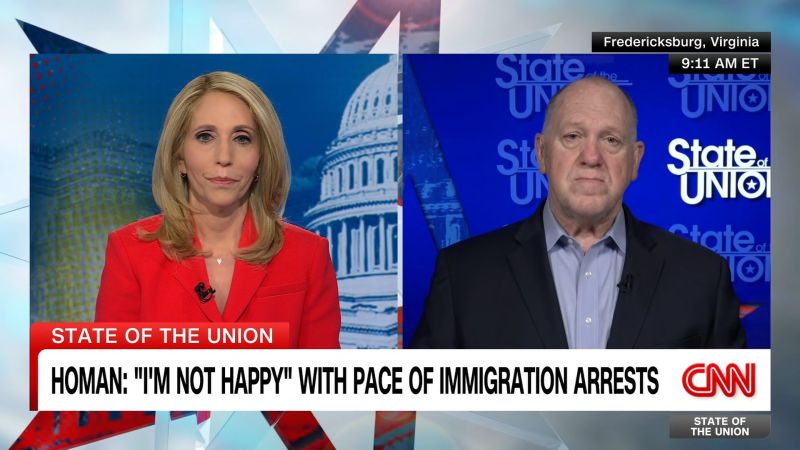Unsurprised and Unsilenced: Black America's Perspective on Trump's Unfolding Narrative
Politics
2025-04-07 09:01:48Content

For generations, Black Americans have witnessed the systematic erosion of legal protections and justice, making Donald Trump's brazen disregard for the rule of law feel like a familiar, though deeply troubling, historical pattern. The current political landscape may shock many, but for Black communities, it represents a continuation of long-standing systemic inequities that have repeatedly challenged the promise of true equality in America.
Throughout history, Black Americans have endured countless instances where powerful figures have manipulated legal systems, circumvented constitutional protections, and undermined democratic principles. Trump's actions, while unprecedented in modern presidential politics, echo a painful historical narrative of institutional racism and selective application of justice that Black communities have experienced for centuries.
From the era of slavery to Jim Crow laws, from discriminatory judicial practices to contemporary political maneuvering, Black Americans have consistently been at the forefront of recognizing how power can be wielded to undermine legal and democratic norms. The current political moment is not a shocking aberration for them, but a stark reminder of ongoing struggles for genuine legal equality and fair representation.
What many see as a recent breakdown of democratic norms, Black Americans recognize as a long-standing pattern of systemic injustice—a perspective that offers critical insight into the fragility of democratic institutions and the ongoing work required to protect them for all citizens.
Systemic Injustice: The Enduring Struggle of Black Americans Against Institutional Oppression
In the complex tapestry of American democracy, the experiences of Black Americans reveal a profound narrative of resilience and resistance against systemic inequalities that have persistently challenged the nation's foundational principles of justice and equality.Unmasking the Persistent Patterns of Systemic Discrimination
Historical Roots of Institutional Marginalization
The historical landscape of Black American experiences is deeply etched with narratives of systematic exclusion and oppression. From the brutal era of slavery to the contemporary manifestations of structural racism, Black communities have consistently confronted institutional barriers designed to limit their social, economic, and political advancement. The mechanisms of marginalization have evolved, yet their fundamental intent remains disturbingly consistent. Generations of Black Americans have witnessed and endured sophisticated systems of discrimination that operate beneath the veneer of legal frameworks. These systems, while often less overt than historical practices like segregation, continue to perpetuate inequitable outcomes across multiple societal domains, including education, employment, healthcare, and judicial processes.Political Manipulation and Systemic Erosion of Rights
The current political landscape represents a continuation of long-standing strategies of power manipulation that disproportionately impact Black communities. Political actors have consistently employed tactics that undermine democratic principles, targeting vulnerable populations through legislative maneuvers, voter suppression techniques, and strategic legal interpretations. These approaches are not novel innovations but rather sophisticated iterations of historical methods designed to maintain existing power structures. By exploiting legal ambiguities and procedural loopholes, certain political entities perpetuate systemic inequalities while maintaining a facade of procedural legitimacy.Psychological and Societal Implications of Persistent Discrimination
The cumulative impact of sustained institutional discrimination extends far beyond immediate material consequences. Black Americans navigate a complex psychological landscape characterized by generational trauma, resilience, and a nuanced understanding of systemic challenges. The emotional labor required to consistently confront and resist discriminatory practices creates profound psychological burdens. Communities develop intricate coping mechanisms, cultural resilience, and collective strategies of survival and advancement that demonstrate remarkable human adaptability in the face of systemic adversity.Resistance, Transformation, and Collective Empowerment
Despite pervasive challenges, Black American communities have consistently demonstrated extraordinary capacity for resistance, innovation, and collective empowerment. Social movements, grassroots organizing, legal challenges, and cultural expressions have been powerful instruments of transformation. The ongoing struggle is not merely about confronting oppression but actively constructing alternative narratives of possibility, agency, and collective potential. Each generation builds upon the foundational work of predecessors, creating increasingly sophisticated strategies of resistance and social reconstruction.Contemporary Manifestations of Systemic Challenges
Modern institutional discrimination manifests through complex, often subtle mechanisms that require nuanced understanding and strategic intervention. From algorithmic bias in technological systems to disparities in healthcare access, contemporary challenges demand sophisticated, multidimensional approaches to dismantling systemic inequities. The intersection of technological advancement, political dynamics, and historical legacies creates a complex terrain where discrimination can operate with increasing sophistication and perceived neutrality. Recognizing and challenging these evolving mechanisms requires continuous critical analysis and collective action.RELATED NEWS
Politics

Unveiling the Biden Billions: A Deep Dive into Government Spending Secrets
2025-02-18 22:27:47
Politics

Breaking: Trump Era Shakeups - White House Moves, Personnel Changes, and Crypto Market Buzz
2025-02-20 13:10:30






